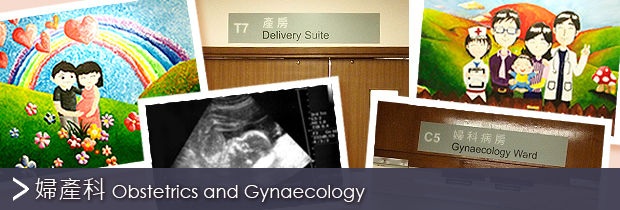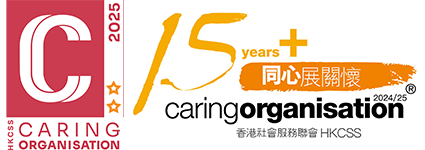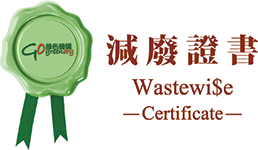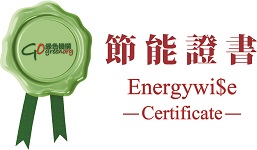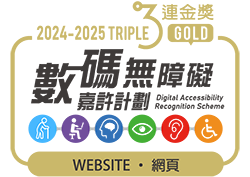Home

This site is designed to provide information about the Department of Obstetrics and Gynaecology of Tuen Mun Hospital. Information includes the background, services and recent activities. Please select the area of interest to you by clicking the buttons above. We hope that you enjoy our site and we are looking forward to receiving your comments and suggestion.
Introduction
The department of O&G of Tuen Mun Hospital was established in March 1990. The department consists of an obstetrics team and a gynaecology team. Totally there are 4 wards and about 200 dedicated staff. The serving area includes Tuen Mun, Tin Shui Wai, Yuen Long, and Northwest regions of the New Territory Region.
We are also an assigned specialist training centre for obstetricians and gynaecologists by The Royal College of Obstetricians and Gynaecologists and The Hong Kong Academy of Medicine.
The department manages about 1,500 to 2,000 gynaecological operations per year.
The birth rate in the department is about 5,000 to 6,000 deliveries per year.
The modes of deliveries are mainly normal vaginal deliveries and followed by cesarean section delivery and instrumental delivery. Our department also provides epidural analgesia service.
Antenatal Checkup Booking Procedures - New Case
- The Antenatal Clinic of Tuen Mun Hospital and the three Maternal and Child Health Centers in Tuen Mun, Yuen Long and Tin Shui Wai jointly provide antenatal services to the pregnant women in the district. Tuen Mun Hospital mainly caters for referral of high-risk pregnant women. In general, pregnant women should go to the Maternal and Child Health Centers for Antenatal check-up.
- Referral letter issued by a local registered medical practitioner / Chinese medicine practitioner / Maternal and Child Health Centre in the last three months and
- A proof of residential address dated within the last six months to a Specialist Out-patient Clinic (Obstetrics) for appointment booking.
New Case Booking Counter
| Address: |
3/F, Ambulatory Care Centre, Tuen Mun Hospital, Tsing Chung Koon Road, Tuen Mun N.T. |
| Telephone: |
2468 5952 |
Service Hours
| Monday to Friday |
9:00am – 1:00pm
2:00pm – 5:00pm
|
| Saturday, Sunday and Public Holiday |
Closed |
Remark: For updated information for booking, please refer to the internet of Tuen Mun Hospital on Specialist Outpatient Services.
Location
Department Office
- Address: B1, Tuen Mun Hospital, Tsing Chung Koon Road, Tuen Mun, N.T. Hong Kong.
- Telephone: (852)-2468 5404
- Fax: (852)-2454 5568
Ward
- D9 - Antenatal Ward (Hot-line: 2468 5696)
- OT9 - Labour Ward (Hot-line: 2465 5809)
- C7 - Post-natal Ward (Hot-line: 2468 5702)
- C5 - Gynaecology Ward (Hot-line: 2468 5606)
- T9 - Integrated O&G Centre (Hotline: 2468 5529)
Mission
- To provide prompt, appropriate and comprehensive client-centred care with obtainable resources through collaboration and cooperation of all staff in O&G department.
- To treasure and honour individuals and team achievement, and to enhance continuous improvement.
- To achieve excellence, through cooperation and participation with other health care organization and to develop partnership with community.
Services
Obstetrics Unit
| Antenatal Ward |
Consisting of 32 hospital beds, which provide in-hospital antenatal care to both normally as well as complicated pregnancies. For more detailed information please click. |
| Labour Ward |
Consisting of 13 delivery beds and 2 operation theatres, which provide delivery suite services including both spontaneous and operative deliveries. For information about Information on Significant Others Accompany Labour and Photo Taking in Labour Room or pain relief during labour please click. |
| Postnatal Ward |
Consist of 32 hospital beds, which provide post-delivery maternal, neonatal care, and breast feeding promotion activities. For more information, please click. |
| Prenatal Diagnosis Clinic |
Down's Syndrome screening programme |
| Obstetrics |
Provide dating Scans to all patients from Ambulatory Care Centre. Subsequent or serial ultrasound scans are provided to clinically indicated patients. |
| Outpatient Clinic |
Provides outpatient services to referred patients and hospital discharged patients. |
Gynaecology Unit
| Gynaecology Ward |
Consists of 44 hospital beds which provide hospital gynaecological care to emergency or clinically admitted patients. For information of admission and pre-operation preparation, please click. |
| Gynaecology Ultrasound Clinic |
Provides gynaecological ultrasound services to clinically indicated patients. |
| Colposcopy Clinic |
Initial assessment and follow-up of patients with cervical pathology. For patient's information, please click. |
| Urogynaecology Clinic |
Further assessment of patients with urinary problems including urodynamic study. |
| Hysteroscopy Clinic |
Outpatient based hysteroscopy plus endometrial sampling to patients with menstrual problems. |
| Outpatient Clinic |
Provides outpatient follow-up for referred and discharged patients. |
Academic Activities
| |
Monday |
Tuesday |
Wednesday |
Thursday |
Friday |
Saturday |
| AM |
--- |
A/N Ward
P/N Ward
Grand
Round |
--- |
Gyn. Ward
Grand
Round |
Academic
Meeting |
--- |
| PM |
--- |
--- |
--- |
--- |
--- |
--- |
- Academic activities for Medical Students
- Academic activities for House Officers
- Academic activities for Midwives
TMACC - Tuen Mun Hospital Ambulatory Care Centre
Location
Hospital Map
Telephone / Fax
Telephone: 2468 6275
| Weekday |
9:00 am - 17:00 pm |
| Saturday / Sunday & Holiday |
Closed |
Obstetrics Clinic
|
AM |
PM |
| Monday |
--- |
Old case |
| Tuesday |
--- |
--- |
| Wednesday |
--- |
--- |
| Thursday |
New Case |
Old case, Postnatal follow-up |
| Friday |
High Risk Pregnancy Clinic |
--- |
Gynaecology Clinic
|
AM |
PM |
| Monday |
--- |
--- |
| Tuesday |
--- |
New case, Old case, Infertility and Urology |
| Wednesday |
New case, Old case, Molar and Oncology |
New case, Old case |
| Thursday |
--- |
--- |
| Friday |
--- |
New case, Old case |
| Saturday |
--- |
--- |
Antenatal Ward Services
Introduction to Antenatal Ward Services
A. In-hospital services (D9 Ward) For information on admission, please click here.
| Target Group |
- For pregnant women who present with symptoms and signs of labour.
- For pregnant women presenting with pregnancy complications like hypertension, diabetes, heart disease or antepartum haemorrhage...etc.
|
| Services |
- To provide adequate care to pregnant patients in early labour.
- To provide professional management and care to those with pregnancy complications.
|
B. Integrated O & G Centre (T9, 9/F, Main Block, TMH)
I. Integrated Centre
| Purpose |
- To reduce the number of admissions and minimize the inconvenience to the daily life due to hospitalization.
- To enhance better use of the resources.
- To relieve women's psychological stress or anxiety due to hospitalization.
|
| Services |
Ⅰ Obstetrics
- Ultrasound services.
- Non-stress test.
- Oral glucose tolerance test.
- Blood pressure clinic.
- Gestational Diabetes mellitus clinic.
Ⅱ Gynaecology
- Colposcopy clinic
- Early Pregnancy Assessment Clinic
- Pap Smear Nurse Clinic
- Gynaecological Day Procedure Clinic
- Operation Booking Clinic
|
II. Prenatal Diagnostic Clinic
| Purpose |
- To care for pregnant women with specific high risks factors
- To identify abnormal babies during early pregnancy for prompt & appropriate management.
|
| Target Group |
- Pregnant women with previous congenital abnormal fetus/ baby.
- Pregnant women with family history of abnormal chromosomal disease.
- Couples with inherited genetic disease, e.g. Thalassaemia.
- Pregnant women with abnormal fetal ultrasound result.
|
| Services |
- Ultrasound scan
- Amniocentesis
- Chorionic villus sampling
- Down's syndrome screening
- Thalassaemia screening
- Group B streptococcus screening
|
Other Services
- Antenatal class (Antenatal class conducted in Cantonese dialect only)
- Gestational Diabetes mellitus education & counseling.
- Hotline services.
Antenatal Ward In-hospital Services Information
Antenatal Ward Admission Information
- If further investigation is necessary to be done in antenatal D9 Ward, Tuen Mun Hospital, mothers should proceed the admission procedure prior for further investigation and treatment.
- Directly go to Tuen Mun Hospital antenatal ward at 7th floor Block A with relatives whenever there are sign(s) of labour ( abdominal pain, show or leaking of liquor ).
- When admission, must remember to bring along the mother's ID card or identity document and husband's ID card or identity document, MCHC follow up card, antenatal checkup record or ACC follow up appointment slip.
*Remarks: Before admission, please remove finger nail polish and toe nail polish and remove personal valuables e.g. rings, necklace*
- Prepare the followings for admission one month before the expected date of confinement:
- For Mother
- Maternity pads
- Mesh pants
- Under pads
- Tissues
- Tower
- Brassieres
- Anti-slippery slippers
- For Baby
- Diapers for newborns
- Baby wipes and small towels
- Avoid bringing a lot of money, fragile containers or valuable items to hospital.
- Visiting hours: 5:30 pm to 8:30 pm. Two people only each time.
Children under 12 years of age are not advised to go into the ward.
- Extra lunch serving period: Relatives are allowed to bring in food and drink to mothers ( if condition allowed ) during the period of 12 noon to 1 pm daily.
** To comply with Hospital Infection Control Policy in Hospital, visiting hours would be changed without prior notice. **
Remark: when women are in advance labour stage, they will be transferred to labour ward.
Antenatal Ward Discharge Information
- Pay for the hospital fee at the account office on the ground floor and get the medicine (if any) at the pharmacy on the ground floor in the Ambulatory Care Center (from 9am to 6pm) or at the pharmacy on the ground floor in the main hospital building (after 6pm).
- Make sure you have a follow-up appointment.
- Hotline services - for any enquiry please call 24685696.
Significant Others Accompany Labour and Photograph of Baby in Labour Room
- The Service of Significant Others Accompany Labour is open for client who plans to have normal vaginal delivery.
- Only one significant other is allowed to stay with client during the labour process.
- No food or drink is allowed to bring into the labour room.
- Turn off mobile phone and put on cap, mask, gown and slippers provided by labour room.
- Accompany Labour Service will be suspended or terminated when client undergoes instrumental delivery, caesarean Section or epidural analgesia.
- Taking photograph of newborn and mother by your own mobile phone or camera is welcomed.
Pain relief during labour
There are various non-pharmacological and pharmacological pain relief methods are provided in labour room.
Non-pharmacological pain relief measures
1. Provide support and encouragement
Encourage client to invite significant others accompany labour and do deep breathing exercise.
2. Childbirth massage
Childbirth massage is applied to women who aim at normal birth. It requires some systemic techniques through touching skin to stimulate and regulate pain relief hormones. It would help to alleviate back pain, labour pain, reduce anxiety and promote positive experience toward normal birth. Significant other is taught to perform massage for client during the first stage of labour.
3. Birth Ball
Application of birth ball can relieve pelvic floor muscle stress, relieve labour pain, facilitate descend of fetal head and normal spontaneous delivery.
Pharmacological pain relief measures
1. Entonox
Entonox is a mixture of nitrous oxide and oxygen and is used as an inhaled pain relief agent. It takes 15 to 30 seconds to work after being inhaled. To be used effectively, it should be inhaled just before the uterine contraction. The advantages are easy handling, safety to the mother and the baby. However, the effectiveness was variable to different patient. The smell may be quite strange to some patients and over inhalation may cause vomiting and annoying feeling.
2. Pethidine
Pethidine is an analgesic given by intramuscular injection. It takes about ten minutes to work after injection. The common side effects are nausea and vomiting. Since the pethidine can be transferred to the baby through the placenta, causing neonatal respiratory depression, therefore, it cannot be given shortly before baby was born.
3. Epidural Analgesia
Epidural analgesia is an effective pain relief method. It can be used for labour pain relief. It also improves the placental circulation and improves the in-utero environment for the baby. It can be used as anesthesia for instrumental delivery as well as caesarean section.
-
What is epidural analgesia?
Labour pain is transmitted through the spinal cord to the central nervous system. The principle of epidural analgesia is to apply anesthetic medication to the epidural space in order to achieve a blocking effect to the pain transmission
-
Before the procedure
Nursing staff will introduce the relevant information to patient after admission to the labor ward. If patient opts for the service, the anesthetist will explain the advantages, the procedure and the side effects of the epidural analgesia in detail. A consent form should be signed if the patient agrees to the procedure.
-
The procedure
Patient should bend forward during the procedure. Anesthetist will put in a thin tube to an appropriate place (epidural space). Then, medication will be given through the tube in order to achieve pain relief effect. Nursing staff will constantly assess the patient during the labour. The pain relief effect will be maintained till the baby is delivered.
-
During Labour
Although epidural analgesia can effectively reduce the labour pain, the ideal condition is to retain a certain degree of labour sensation. You can discuss with the anesthetist about the pain control. Some patients may need instrumental delivery but this will not impose a negative effect to the baby. In fact, instrumental delivery may need to use in some mothers without epidural analgesia for other indications.
-
The effect of epidural analgesia
The epidural analgesia will be conducted by an experienced anesthetist. This is a safe method for pain control but you may experience:
- Numbness of the lower limbs.
- Transient loss of urge sensation and intermittent urinary catherization may be needed.
- Shivering.
These conditions will subside after the epidural analgesia is stopped. Other undesired effects include hypotension but this can be easily corrected by intravenous fluid replacement. Under certain circumstance (about 1/200), dural puncture may occur and result in spinal anesthesia effect. Patient may experience transient headache but this usually subsides spontaneously within a few days.
Misunderstanding
-
Low back pain
It can occur because of excessive muscle or ligament strain during antenatal or intrapartum period. Studies had shown that there is no increase of low back pain because of epidural analgesia.
-
Damage to the spinal cord
The spinal cord extends to the level of L1, the epidural tube is inserted at the L3/L4 level. Therefore epidural analgesia will not damage the spinal cord.
Individual nerve may be compressed during labour. Expectant mothers may experience numbness after delivery. It occurs in about 1/10000 delivery and usually subsides spontaneously after a few months.
Conclusion
More than one pain relief methods may be used. Please discuss with the nursing staff and doctors. Make sure you have a suitable and effective pain relief method. Finally, we hope the above message can help you in understanding the labour pain control.
Postnatal Ward
Postnatal Ward Information
-
Visiting
- Lunch serving period: relatives/friends are allowed to bring in food and drink to postnatal mothers during the period of 12:00 to 13:00.
- Visiting hours from 17:30 to 20:30.
- Only 2 visitors are allowed at one time, children under 12 years of age are not allowed.
**To comply with Hospital Infection Control Policy in Hospital Authority Hospitals, visiting hours would be changed without prior notice.**
-
Personal necessities
-
For Mother
- Maternity Pads
- Mesh pants
- Under pads
- Tissues
- Tower
- Plastic cup
- Brassiere(s)
- Anti-slippery slippers
-
For baby
- Diapers for newborns
- Baby wipes and small towels
Care & education for postnatal Mothers & Newborns
Health care and education programmes are providing for postnatal women & their newborns before discharge.
-
Postnatal Self-Care
- Education on uterine massage, observation of characteristics of lochia. Change maternity pads frequently and shower daily etc.
-
Care of perineal wound / abdominal wound.
- Perineal wound: Clean the perineal wound with water from front to back after urination.
- Abdominal wound: Keep wound intact (dry & clean) if the stitches are NOT removed.
-
Newborn care
Discharge Advice
-
Preparation of necessities
- Postnatal women: clothes
- Newborn: clothes and blanket.
-
Hospital fee
- Payment at Shroff during office hours after discharge. Any enquiries about hospital fee, please refer to webpage on Hospital Authority.
-
Medications
- (If any) Collecting medication from Pharmacy at G/F of Ambulatory Care Center OR G/F of Main Block.
-
Perineal wound/ abdominal wound care
- Perineal wound: Clean the perineal wound with water after urination.
- Abdominal wound: Keep abdominal wound intact (dry & clean) if stitches NOT being removed.
- On the day of removal stitches (if need), bring the wound care slip to General Out-patient Clinic (GOPC) / private practitioner to remove stitches.
-
Newborn immunization:
- Newborn will be immunised Hepatitis B vaccine and Bacille Calmette-Guerin (BCG) vaccine before discharge generally.
- Newborn will be given Hepatitis B immunoglobulin if its mother’s HbsAg status is positive.
-
Postnatal follow-up for Postnatal women and Newborns
- Postnatal women: book 6 weeks postnatal check-up & family planning in MCHC
- Newborn: Book MCHC Follow-up as soon as possible to assess newborn jaundice, newborn health assessment & immunization programs after baby discharge from hospital.
-
Procedures for obtaining Birth Certificate
- After booking appointment within 42 days since birth from Tuen Mun Birth Registration Office, bring couple’s marriage certificate (if any), newborn’s parents’ HKID cards/passport for registration of Birth Certificate.
- For details, please refer to related leaflet “ How To Apply For Birth Registration”. Parent of the newborn need to make prior appointment booking for birth registration at a relevant births registry through Internet (www.gov.hk/birthregistration) or by telephone 2598 0888.
-
Family planning
- Should be discussed upon discharge.
-
Infant feeding (Breastfeeding/formular feeding), Postnatal Support & Counselling
- Postnatal hotline ( Voice-mail) 2468 5702 (09:00-21:00).
- Breastfeeding enquiries hotline: 2468 5702 (09:00-21:00).
- Lactation Consultant Clinic service for Lactating women with breastfeeding challenges.
- Regular phone follow-up on breastfeeding.
Breastfeeding Promotion Services
-
Education
-
Breastfeeding promotion services during hospitalization
- Encourage Skin-to-Skin Contact as long as possible after birth in delivery suite.
- Encourage early initiation of breastfeeding as soon as possible after birth in delivery suite.
- Encourage rooming-in and early initiation of breastfeeding in delivery suite & postnatal ward.
- Professional midwives/Lactation Consultants are provided support.
- Assist mother to identify & support early breastfeeding difficulties.
- Breastfeeding supporting group.
-
Support and Counseling after discharge
- Tele-counseling and regular phone follow-up.
- Breastfeeding hotline: 2468 5702.
- Lactation Consultation Clinic service for Lactating women.
- MCHC Follow up.
Information to patients admitted to Gynaecology ward
| Visiting hours |
- From 5:30pm to 8:30pm, only two persons are allowed each time; children under 12 are not allowed.
- Extra meal delivery time: from 12 noon to 1pm, two persons are allowed each time; children under 12 are not allowed.
** Please be cooperative because visiting outside the time schedule may affect the normal operation of the ward.
** To comply with Hospital Control Policy in Hospital, visiting hours would be changed without prior notice.
|
| Personal items |
Please prepare for the necessary personal items; e.g. towel, toothpaste, toothbrush, comb, soap, shower-cap, slippers, cup, toilet paper and sanitary pads ...etc. |
| Toilet |
Patient's toilets are restricted to female patients only. There are 2 toilets, one located at the middle and the other behind the ward. Visitor's toilets are adjacent to the main elevators. |
| Meal |
Breakfast, lunch, dinner and night snack (milk, biscuits or bread) will be supplied by the ward. All meals were defaulted to be no beef or egg in this ward. Please inform us for any food taboo or allergy such as no chicken, vegetarian, halal food etc. |
| Telephone |
Under normal circumstances, patients can use their own mobile phones in ward. Recharge of battery by using ward sockets are not allowed as this will interfere with the power supply to medical devices. Ward telephone may be used by patients if needed. |
| Interviewed with the Medical Officers |
With patient’s agreement, relatives may make appointment through nurses for arrangement of interview with the doctor. Usually interview will be arranged after the morning ward round at about 11:00AM. Please nominate a representative for the relatives, improve communication among the relatives and avoid making multiple and repeated appointments with each and every relative. Please inform nurses one day beforehand if it is deemed necessary. |
| Enquiry |
For any enquiry, please contact the on duty nursing staff. For any enquiry after discharge, please call hotline at 2468 5606 from 5:30 pm to 6:30 pm. We are glad to reply any enquiry. For emergency condition please seek immediate care from the Accident and Emergency Department. |
| Payment |
The account office is located on ground floor. |
| Medication |
Pharmacy is located on the ground floor in the Ambulatory Care Center (from 9am to 6 pm) . After 6 pm, please collect drugs from the Pharmacy on the ground floor in the main Hospital Building. |
| Others |
-
For Ultrasound scan:
- Please empty the bladder as advised before vaginal ultrasound scan.
- Patients need to hold the urine as advised before performing abdominal ultrasound scan.
*As Tuen Mun Hospital is one of the assigned training centres for specialists in Hong Kong, thus there may be more than one doctor during the examination. Should patient have any query, could enquire the doctor straightaway.*
- Please inform the nurse in case of tissue mass being passed out and do not flush it away.
- Please do not bring along expensive items.
- Please inform nurse if you leave the ward.
- Please contact the information counter on the ground floor for application of medical report or call 2468 5371
|
Patient's information about the pre-operation day
| Operation day |
Pre-operation assessment day |
| Monday |
Tuesday or Thursday of previous week |
| Friday |
Thursday of previous week |
| (Under special circumstances or if the pre-operation day falls on the public holiday, please refer to the admission slip) |
Patient will be admitted to Pre-operative Service Unit in Rehabilitation Block R7A ward for pre-operative preparation. Patient will be normally stayed in R7A Ward until 5 pm. Some patients may require hospital admission for observation only when necessary.
Pre-operation day Program
- Morning
- Registration, check blood pressure, check temperature and urine- testing.
- Interview by doctor.
- Examination
- Gynaecological examination
- Ultrasound scan
- ECG
- Pregnancy test
- X-ray
- Blood tests
- Noon
- Briefing on preoperative and postoperative care conducted by nurse.
- Lunch will be available at about 12:00 noon. You can enjoy your lunch at the hospital canteen or request your lunch from the ward. Inform the nurse for special diet, e.g. 1,800 Cal, vegetarian diet, etc.
- Afternoon
- Interview by anesthetist
- On completion of the procedures, please pick up the payment slip and the readmission slip, and readmit punctually on the appointed date.
Others
- Because of the tight schedule in the pre-operation day, patients are advised to stay in R7A ward.
- Relatives could wait outside the ward while examinations are performed. If patient is admitted for sterilization operation, her husband should come together on the pre-operation day or the readmission day to sign the consent form for operation.
- Usually you will stay for only one day at R7A ward and a bed will not be assigned unless specially requested.
- The payment for hospital fee can be paid on the day when you are discharged after operation.
- The sick leave certificate will be available when you are discharged.
- You may be assigned a steel camp bed when you are readmitted to C5 Ward. A formal bed will be available after the operation.
- Please avoid bringing expensive items when you are readmitted.
- Under very special circumstances the operation may be cancelled or rescheduled. We apologize for any inconvenience caused.
Colposcopy
Introduction
Colposcopy is helpful in reducing the incidence of cervical cancer and detection of early cervical pathology.
Why do we need colposcopy?
- When there is an abnormal cervical smear, we need to do colposcopy and observe for any cervical pathology.
- Any suspicious lesion detected during colposcopy will be excised and sent for histology.
- Colposcopy and histological examination of the biopsy can detect cervical pre-cancer or cancer.
What is colposcopy?
- Basically, the colposcope is a binocular magnifying glass for closer observation of the cervix.
Procedure of colposcopy
- Patient is placed in lithotomy position.
- Cervix was stained with acetic acid so as to observe for any pathology.
- Biopsy will be performed for any suspicious lesion and the specimen will be sent for histology.
- LEEP (excision of part of the cervix containing the lesion)
- Base on the histology report, colposcopy will be repeated in case of confirmed abnormalities and the lesion will be excised.
Preparation for the colposcopy
- Colposcopy finding will be affected by menstrual blood. Please contact the ward and rearrange another appointment in case of menstruation.
- Consent is necessary before the procedure.
- Patient may experience mild discomfort or pain. Usually the procedure can be finished within a short time and majority of patients can cope well.
Precautions after the procedure
- Patient may experience menstrual like pain but it usually subsides soon after the procedure.
- Patient may have mild vaginal bleeding for a few days.
- Please seek medical advice in case of foul vaginal discharge, persistent vaginal bleeding, abdominal pain or fever after the procedure.
- Avoid sexual activities for a few weeks after the procedure.
- Patient needs to be followed up afterward.
- Usually the procedure will not affect future pregnancy.
What is hysteroscopy?
Hysteroscopy is an instrument of about 4mm in diameter. It is used to inspect the uterine cavity in order to detect any abnormalities. It is a common gynaecological procedure.
Before the procedure
- Please inform T9 or C5 ward if you are having menses on the day of procedure. We will rearrange another appointment for you. Tel: 2468 5529 or 2468 5606
- Make sure you have adequate contraception before the procedure so that you are not pregnant at the time of procedure. Please inform the nurse if you are pregnant or may be pregnant.
- Please prepare sanitary pads which may be needed after the procedure.
- Consent is necessary before the procedure after full explanation by the doctor.
Procedure
- Usually no anesthesia is needed.
- The hysteroscope will be inserted into the uterus through the vagina and cervix. The uterine cavity will be inspected. Endometrial sampling will usually be performed to obtain some tissue for further histological examination afterwards.
- Other simple procedures such as polypectomy or IUCD removal may be done during the procedure.
- The procedure usually lasts for 10 minutes.
After the procedure
- No special precaution is needed after the procedure. There may be some vaginal bleeding which will subside within 1 to 2 weeks.
- Some patients may experience transient spasm of the uterus after the procedure, which will subside after resting for an hour. Please ask for analgesic if necessary.
- The possible complications of this procedure include infection, uterine perforation and damage to the adjacent organs. Please call T9 or C5 Ward or seek help at the Accident & Emergency Department in case of persistent abdominal pain or increasing vaginal bleeding.
- Please attend the follow-up appointment. You can ask for the results of the investigation during follow-up. Under special circumstances, our staff will contact you in advance.
Endometrial sampling
Endometrial sampling (Vabra aspiration): is a common gynaecological procedure. A small plastic tube is inserted into uterine cavity. Endometrial tissue is aspirated by suction. The tissue will be sent for histological examination. The whole procedure lasts for 5 to 10 minutes.
Indication for the procedure
Endometrial sampling is usually performed when we suspect any abnormalities of the uterine cavity tissue.
Before the procedure
- Please inform T9 or C5 ward if you are having menses on the day of procedure. We will arrange another appointment for you. Tel: 2468 5526 or 2468 5606. Make sure you have adequate contraception before the procedure so that you are not pregnant at the time of the procedure. (Please inform the nurse if you are pregnant or may be pregnant.)
- Consent is necessary before the procedure, after explanation by the doctor.
- Patient may experience menstrual like pain which is only transient and usually subsides soon. Please relax and the procedure will be completed within minutes.
- Please prepare sanitary pads which may be needed after procedure.
After the procedure
- Patient may go back to work after the procedure.
- Medication like analgesic, hormone or transamine may be given to individual patient.
- The possible complications of this procedure include infection, uterine perforation and damage to the adjacent organs.
- Please call T9 or C5 ward or seek help at the Accident & Emergency Department in case of fever, persistent abdominal pain or increasing vaginal bleeding.
- Please attend the follow-up appointment. You can ask for the results of investigation during follow-up. Under special circumstances, our staff will contact you in advance.
T9 Integrated O&G Centre Tel: 2468 5529
C5 Gyn. Ward Tel: 2468 5606
|



